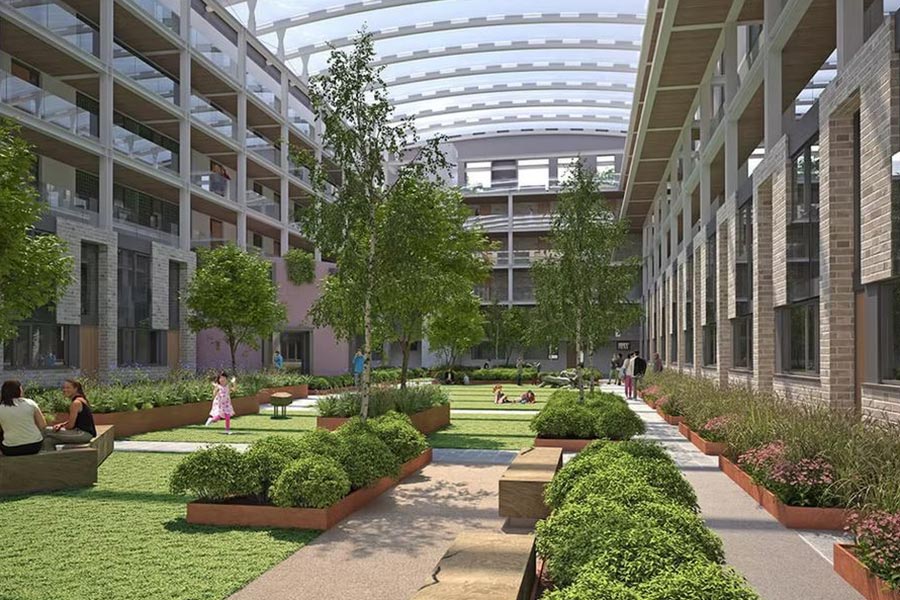A High Court judge has refused to allow an appeal against the quashing of planning permission for 130 buy-to-let apartments in Clontarf, Dublin, writes Helen Bruce.
The €52m project has been the focus of fierce opposition from locals since 2021, when 350 objections were lodged to the four six-storey blocks at Redcourt, Seafield Road East, Dublin 3.
As well as complaining about the proposed height, residents – including former Fianna Fáil TD for Dublin Bay North Seán Haughey – also cited traffic concerns, and said the development, by Savona Ltd, was “totally unsuitable”.
Having reviewed the case, Judge David Holland last year overturned An Bord Pleanála’s permission for the development.
He ruled that the project breached the development plan for the area, as the roofed courtyard did not constitute communal open space.
He also said the board erred in law by not asking Dublin Bus or Savona for written confirmation about the adequacy of public transport at peak times.
This week, he has issued a new ruling in which he rejected An Bord Pleanála’s bid to appeal the case to the Court of Appeal.
Under the Planning and Development Act, the default position in such judicial reviews is that the High Court’s decision is final – a step introduced to expedite and finalise planning appeals.
The High Court decision can be appealed only if the court certifies that it involves a point of law of exceptional public importance, and that it is desirable in the public interest that an appeal should be taken.
Judge Holland said Savona had submitted that the appeal would be a matter of public interest, due to “the importance of residential development in the current national housing crisis”.
He said the housing crisis represented “a very significant national challenge”.
However, he said that after he had quashed the permission, the plans could be reformulated and reconsidered by An Bord Pleanála.
If the plans were then rejected, that would be a lawful decision, even against the background of a housing crisis, the judge said.
If they were granted permission, the judge said there was no reason to believe that any delay would be time-critical to the housing crisis.
Judge Holland said a major point of dispute in the longrunning case had concerned the adequacy of Dublin Bus’s 130 bus route to serve future residents of the new apartments.
“The objecting local residents invoked their daily peak-hour experience of standing at bus stops watching full buses pass them by,” he said.
“Savona asserted that Dublin Bus had confirmed in correspondence that the 130 buses to and from the city centre in the morning and evening peak times generally do not operate at maximum capacity.”
Judge Holland said it had emerged that Savona did not give the planning board a copy of its correspondence with Dublin Bus.
It also emerged that the correspondence only addressed buses coming from the opposite direction to those commuters leaving the apartment development in the morning and returning in the evening.

The judge also said he saw no uncertainty in the law concerning the fact that particular circumstances, such as public transport adequacy, may impose a duty on the board to seek further information.
He also said he could not see any uncertainty in the law regarding the definition of open space, such as would require an appeal.
“I refuse to certify an appeal in this case,” he concluded.











